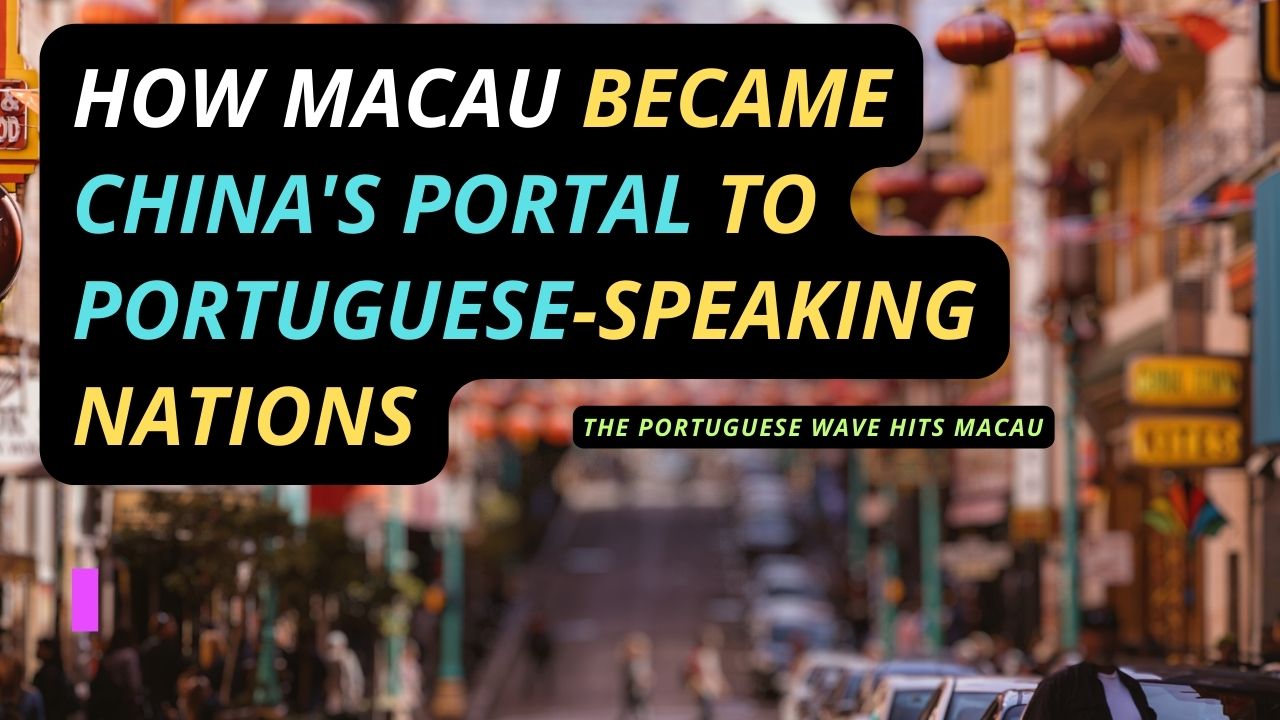The Portuguese Language: A Bilingual Gateway between China and Portuguese-Speaking Nations!

The Portuguese Language: Get ready to know the linguistic landscape of Macau, a former Portuguese colony, and its role as a bilingual gateway connecting China and Portuguese-speaking countries. Discover the increasing interest in the Portuguese language among Chinese students and professionals, and the economic and diplomatic opportunities Macau offers. Dive into this paradigm shift and its implications for the future.
The Rise of Portuguese in Macau
Macau, once a Portuguese colony, has undergone a significant linguistic transformation since its handover in 1999. While there may be fewer native Portuguese speakers in the city, there has been a remarkable surge in the number of Chinese individuals embracing the Portuguese language.
Portuguese Education in Macau
At the University of Macau, Portuguese classes have seen a notable increase in enrollment. Chinese students, driven by the desire for professional opportunities, are actively choosing Portuguese as part of their academic pursuits. The language proficiency opens doors to careers in business, diplomacy, and trade.
Macau’s Economic Diversification
Macau, renowned for its gaming industry, is now striving to diversify its economy beyond this sector. With growing commercial interest, Macau has become a hub for technology and startups, attracting both Brazilian and Chinese investors. The bilingual advantage of Macau enhances its appeal as a gateway for business ventures.
Macau’s Strategic Positioning
Despite China’s resourcefulness and connectivity, Macau’s role as a gateway remains significant. Its ability to bridge the linguistic gap between Cantonese, Mandarin, and Portuguese makes it a strategic hub in the Greater Bay Area. Macau’s GDP, eight times that of Portugal, and its contribution to China’s overall GDP further solidify its importance.
Thriving Partnerships and Exchanges
Macau’s reopening of borders in recent times has led to an increase in partnerships and exchanges. Local consultancy firms are facilitating collaborations between Chinese and Portuguese companies, resulting in a surge of deals. This trend aligns with China’s focus on strategic partnerships in the West and the strengthening ties between Brazil and China.
Macau’s Language Advantage
The presence of Portuguese as an official language in Macau holds immense significance. It acts as a differentiating factor, enabling trade and fostering relationships between China and Portuguese-speaking countries. The steady growth in trade volume between the two highlights the enduring importance of Macau’s language advantage.
Macau’s Future Outlook
With Macau’s bilingual edge becoming sharper, the prospects for economic growth, diplomatic endeavors, and cultural exchange are promising. As China continues to expand its influence globally, Macau’s role as a bilingual gateway will play a crucial part in facilitating connections and forging stronger ties between China and Portuguese-speaking nations.
The Portuguese Language: A Bilingual Gateway between China and Portuguese-Speaking Nations!
In conclusion, Macau’s linguistic evolution showcases the power of language in bridging nations and fostering fruitful collaborations. The increasing interest in the Portuguese language among Chinese students and professionals, coupled with Macau’s strategic positioning and economic diversification efforts, positions the city as a vital bilingual gateway. The future holds immense potential for Macau as it continues to strengthen its ties with China and Portuguese-speaking countries, leading the way in economic growth, diplomacy, and cultural exchange.

